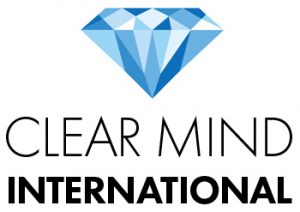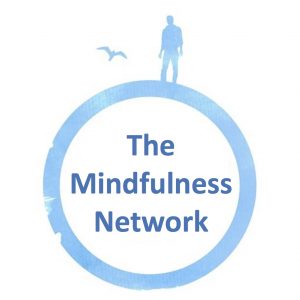

Written by Cathy-Mae Karelse and Jo Gillibrand
This is a guest blog from Cathy, one of our Mindfulness Network Supervisors and Jo, who is a trained mindfulness teacher and coach from Clear Mind International.
We currently find ourselves immersed in the unprecedented escalation of the climate and ecological crisis, rising social inequalities, and, in the UK, prospects of a post-Brexit recession. This is unfolding against a backdrop of the culture of individualism, which is wrapped up with power and systematic dispossession. This individualisation generates isolation and social atomisation, making us feel personally responsible to cope alone with both psychological uncertainty and poor health alike. We are left feeling powerless.
In response to stress, anxiety and ill-health, we are told we need to become stronger, more resilient and well. Such mounting personal and social pressures can generate helplessness and despair. It is usually at times like this that we turn to practices like mindfulness to help us endure and make sense of life.
We are familiar with the sizable research base that says that mindfulness helps individuals reduce stress and improve mental health through learning how to navigate challenges and adversity. Neuroscience studies show that it’s possible to change our relationships to anxiety-provoking conditions and to respond with greater clarity and wisdom if we unlearn our knee-jerk reactions of avoidance and/or insatiability.
Yet, within these changing landscapes, mindfulness itself is coming under the spotlight for the ways it may add to the suffering caused by individualisation. Mindfulness models generally refrain from discussing social conditions and causes of distress. Mindfulness-based interventions, although delivered in group settings, primarily emphasise an individualised bio-physiological appraisal of stress and depression and train participants to have a, less reactive response to difficulty. We learn to drop-in to our resourcefulness and to change our responses in order to alter our lives and survive for another day.
In this broader context, when the burden for wellbeing is placed on the individual while structural causes of illness remain intact, individuals can be seen as not trying hard enough, not coping, and even being a burden to society.
WHAT ARE WE WAKING UP TO?
Yet, as we see the world changing rapidly through environmental and political ‘heating’, it is less and less possible to see stress in individual rather than structural terms. The links between socio-political, economic and environmental factors and poor health are becoming starker and more widely accepted, even giving rise to ‘Brexit-anxiety’.
The idea of mindfulness as ‘waking up’ can potentially, if we are willing, help us come to see more things even more clearly. It can lift the denial of the structural roots of illness. At the same time, it can help us see through the false separation of personal and social freedoms.
In times of despair, mindfulness can make a difference. It can potentially support us in cultivating the long view of history that takes account of generational privilege, power and oppression as the roots of our current crises and inequalities. It can also remind us of the struggles against these systems of domination and inequalities, and enable us to acknowledge progress. Such a mindfulness can help us see our own place in these structures of power and also help us act to change them. In other words, it is a mindfulness of the inner, outer, multidirectional and liminal, seeing these realms as interconnected and inseparable.
SHIFTING FROM DESPAIR TO HOPE
When mindfulness helps us become more aware of our own power, we are better able to act with greater effect to change systems, not only ourselves. And mindfulness can certainly help us shift from the despair of isolationism to the hope of community, within our mindfulness worlds, our various social contexts and beyond. It can help us become part of a greater social transformation that’s intrinsically connected to our inner changes.
Shifting from Despair to Hope is the first in a series of teachings that CMI is delivering to the mindfulness community to engage mindfulness differently. These inclusive sessions are grounded in the long-standing wisdom of ‘do no harm’. They encourage us to locate ourselves in relation to our various communities, including the one that forms around these teachings, and to see ourselves as part of the world.
In this online and live programme, we learn a more radical framing of stress that explains how isolation feeds despair. We unpack the nature of our societies and their dominant narratives and look towards community as an antidote. The presentation includes practices that allow us to pause and feel our way through the landscape of our collective realities.
The series is designed to help us see ourselves in relation to the societies that shape us and that we in turn create. It encourages a growing awareness of the world and our immediate environments and how we may live and act in ways that transform systems and expand our hearts. To apply mindfulness towards the creation of worlds that are diverse, that value difference, that embrace equality and justice, join us as we shift from the “I” to the “we”.
For mindfulness trainers, this programme will help you navigate these new perspectives, offer some personal practices, and provide some insights to enliven still further your group teaching experience. While we are fully aware that mindfulness is not the panacea that it was once presented as in some parts of the media, we are now beginning to see how a new perspective on the community aspects of mindfulness can make radical contributions to the reduction of suffering and the increase of all types of wellness.
WE HOPE YOU WILL JOIN US FOR THIS 4-PART ONLINE SERIES:
When: Tuesdays 19th November, 3rd, 10th and 17th December 2019, 19:00-20:30
Where: Online via Zoom. Sessions will be recorded, so don’t worry if you can’t make all of them, and you’ll be able to keep the series to come back to afterwards. As well as the recordings, a comprehensive Resource List and a pdf of the slides will also be provided to you after each session.
If you have any questions you’d like answered to help you decide whether to join us, please contact jo@clearmindinternational.com
Tutor: The course will be facilitated by Cathy-Mae Karelse, mindfulness trainer and an MN Supervisor. Sessions will moderated by Jo Gillibrand, a CMI-trained mindfulness teacher and coach.
Bursaries: these are available, both to request for yourself or to gift for someone else to benefit from. Please email CMI, in confidence, and we’ll get back to you soon.
Cost: £95
Final registrations and payments by Tuesday 12th November, please.
How to book: Please email jo@clearmindinternational.com
Or pay online here (button at bottom of page): http://clearmindinternational.com/responding-mindfully-to-the-crises-we-face/
Thank you, in advance and we look forward to seeing you on the programme.




